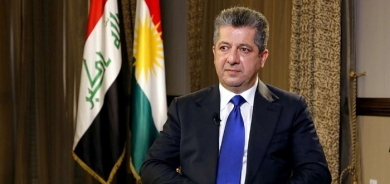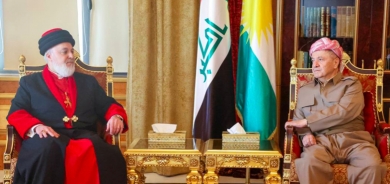A Gathering Storm: Baghdad’s Growing Authoritarianism Menaces the KRG

Ever since the U.S.-led invasion of Iraq and the overthrow of Saddam Hussein’s regime, the relationship between the Kurdistan Regional Government (KRG) and the central government in Baghdad has always been a delicate one. Reflecting the wishes of the overwhelming majority of the Kurdish population, KRG leaders have sought to maximize the degree of regional autonomy. Baghdad’s goal, especially under Prime Minister Nuri al Maliki, has been exactly the opposite—to increase the authority of the national government and constrain the autonomy of the Kurdistan region.
That tension has become even more pronounced in recent months. Maliki’s administration has sought to undermine Kurdish autonomy through both acts of commission and acts of omission. The former include such petty measures as ordering the lowering of the Kurdish flag as a symbolic act to emphasize the region’s political subordination to Baghdad, and far more serious blows, such as pushing the new oil and gas law that would weaken the KRG’s authority over a vital sector of the region’s economy. The principal acts of omission are the continuing refusal to conduct a new census and to set both a firm timetable and an electoral mechanism to resolve the political status of Kirkuk.
All of those actions and inactions have one thing in common. They have the effect, and very likely the intention, of limiting the power and influence of the KRG and the autonomy of the Kurdistan region.
Although Kurdish autonomy is among the leading targets of the Maliki government, it is by no means the only one. Indeed, the prime minister’s actions are part of a broader, very worrisome trend. Prime Minister Maliki’s regime grows steadily more autocratic, and it has begun to alarm experts and pundits in the United States and other Western countries. Restrictions on media outlets--especially those that have televised, broadcast, or printed accounts critical of the prime minister and his political allies--grow increasing onerous. Burdensome, time-consuming, and often arbitrary media licensing requirements have become the norm in supposedly democratic Iraq. The jailing, and even torture, of peaceful demonstrators and other outspoken critics of the regime (including mainstream Iraqi journalists), is on the rise, along with the harassment of prominent political rivals. So too, is rising evidence of financial corruption, including apparent incidents of bribery and vote buying.
Those episodes have led some Western observers of developments in Iraq to describe Maliki as “Saddam Lite.” His political adversaries inside Iraq are equally worried. “The way he is going, he is going to lead the country back to dictatorship,” contended former prime minister Ayad Allawi in an interview with the prominent U.S. magazine The National Journal. “He is opposed to power-sharing. He doesn’t believe in the devolution of power, and he’s not going to do it.”
Even taking into account that Allawi is Maliki’s chief political rival at the national level and might be tempted to portray the prime minister’s motives in an especially negative light, the Baghdad government’s actions are becoming disturbingly authoritarian. The erosion of democracy at the national level does not bode well for the continuation of a robust political autonomy for the KRG. Maliki is trying not only to enhance the power of the central government at the expense of local and regional authorities, but to consolidate as much power as possible in his own hands.
The principal challenge for the KRG going forward will be to carefully monitor those developments and to work with potential non-Kurdish allies to prevent the further shrinkage of democratic values and practices in Iraq. KRG leaders may ultimately have to decide whether a resurgent Iraqi authoritarianism under Nuri al Maliki poses a mortal threat to democracy and self-government in Kurdistan. Developments have not reached that point yet, but the trend is very disturbing and requires greater vigilance and contingency planning.
Ted Galen Carpenter, a senior fellow at the Cato Institute in Washington, D.C., is the author of eight books and more than 450 articles on international affairs.
* Ted Galen Carpenter is senior fellow for defense and foreign policy studies at the Cato Institute. He served as Cato's director of foreign policy studies from 1986 to 1995 and as vice president for defense and foreign policy studies from 1995 to 2011. And he is the author of more than 400 articles and policy studies. His articles have appeared in the New York Times, the Washington Post, the Wall Street Journal, the Los Angeles Times, the Financial Times, Foreign Affairs, Foreign Policy, the National Interest, World Policy Journal, and started from now on to write to Gulan Magazine exclusive columns on monthly bases.

 Ted Galen Carpenter
Ted Galen Carpenter






